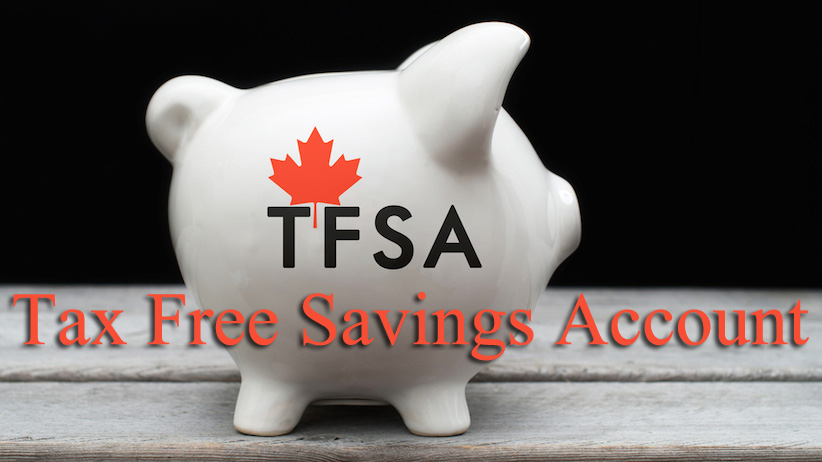
What is a TFSA and how to get it working for you!
What is a TFSA account?
The Tax-Free Savings Account (TFSA) program began in 2009. It is a way for individuals who are 18 and older to set money aside tax-free throughout their lifetime. Contributions to a TFSA are not deductible for income tax purposes. Any amount contributed, as well as any income earned in the account (for example, investment income and capital gains) is generally tax-free, even when it is withdrawn.  Administrative or other fees in relation to TFSA and any interest or money borrowed to contribute to a TFSA are not deductible, meaning that if you pay someone a fee to look after you TFSA, that fee cannot be claimed since the money you are earning is already tax free.
Who can open a TFSA account? What is the current contribution room (as of 2015)
Anyone over 18 years old and has a Canadian SIN number. If you were 18 and older in 2009 and you have never opened a TFSA you have $41,000 in contribution room. This means you can put $40K in an investment, get good returns and not be taxed! (This is when you jump off your seat with overwhelming excitement). Note: Up to this year the contribution room was $5500/year but it just went up to $10,000/year.
Who can contribute to my TFSA?
Contributions can only be made under your name. For example, if you turn 18 but don’t have much to put in, your parents could give you some money but the contribution will be under your name. Their contribution room will not affect your contribution room.
What if I move outside of Canada?
If you are considered a non-resident for tax purposes then you can still keep your TFSA, but you will be taxed 1% of the money you have sitting in the account. Also, your contribution room will not accrue until you are considered a resident. In other words, if you are a non-resident your contribution room won’t grow on a yearly basis. Non-resident: if you live outside of Canada during the year, or stay in Canada less than 183 days a year.
How do I open a TFSA?
Banks, insurance companies, credit unions and trust companies can all issue TFSAs. I have mine with TD, but you can get one with almost any bank in your city. Just walk into your bank and tell them you want to open one.
Lots of institutions are offering TFSA promotions, which one should I go for?
Use the following website to find who is giving the best interests for TFSAs. Click here to visit. Just put in your postal code and BAM! Note: The big 5 banks usually keep their rates constant but smaller institution will increase the interest you get for making a deposit into their TFSAs. For example, my beautiful wife likes President’s Choice Financial because during the year they offer her special higher interests for making deposits.
Something else to think about is how the institution can help you invest. I like TD Waterhouse because they have a good trading platform for buying and selling investments. I do pay a fee each time I open or close a trade but for now I am ok with that. Not only that, they have free investors seminars and podcasts and I can call them any time and I will get advice. I don’t have much experience with other banks but if you do please let me know!
How many TFSA accounts can I have?
As many as you like. The thing is, you cannot go over your contribution limit. So, for example, if you have two TFSA accounts, and your limit is $5000 for the year, you can only make contributes into both accounts totalling up to $5000 (eg. $2500 into one account, $2500 into the second account).
Self Directed TFSA
You can set up a self-directed TFSA if you prefer to build and manage your own investment portfolio by buying and selling different types of investments. This is what I do. I like it because I have total control over my portfolio and I don’t have consultant fees.
What kind of investments are allowed under a TFSA?
The kind of investment you buy is what will really make your TFSA valuable. Most people will put money into a TFSA and get their 1%-2.5% that the bank gives them. There is nothing wrong with that. You are not losing any money as your savings account won’t lose value. But think of the opportunity cost of not investing your cash in one of the vehicles listed below. The CRA says the following are allowed:
- cash;
- mutual funds;
- securities listed on a designated stock exchange;
- guaranteed investment certificates (GICs);
- bonds; and
- certain shares of small business corporations.
To be continued..
So, I was one of the many who kept money in the TFSA and accepted the bank’s rate. Â A year ago I decided to do the smart thing and invest with it. Can you guess what the increase in profit was? 10 fold? 100 fold? Nope! I made 400 times more investing it. Sound crazy doesn’t it? Well, I didn’t even invest all of the money in my TFSA because it was the first time I put in larger amounts of money into investments.
In the next episode of TFSA, I will tell you how to invest with your TFSA and some other things I’ve learned in the past year doing it.

